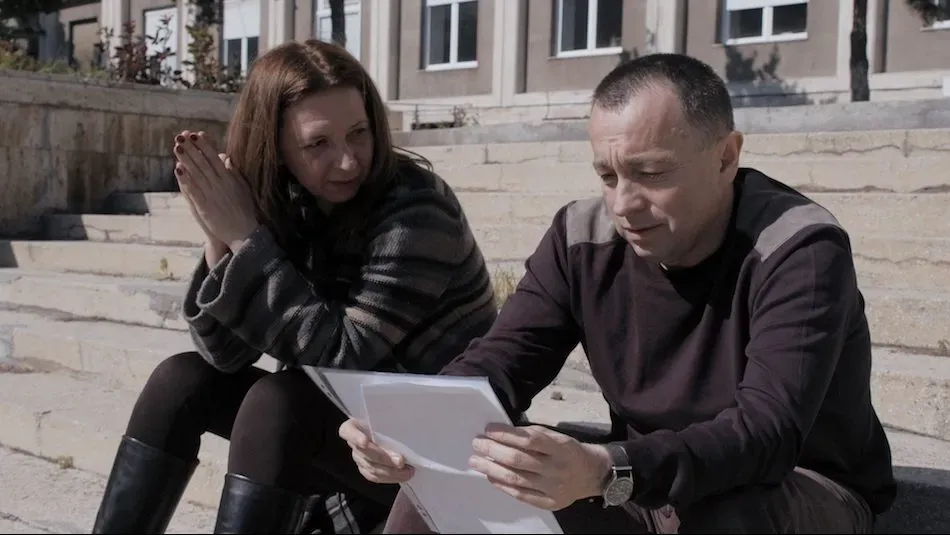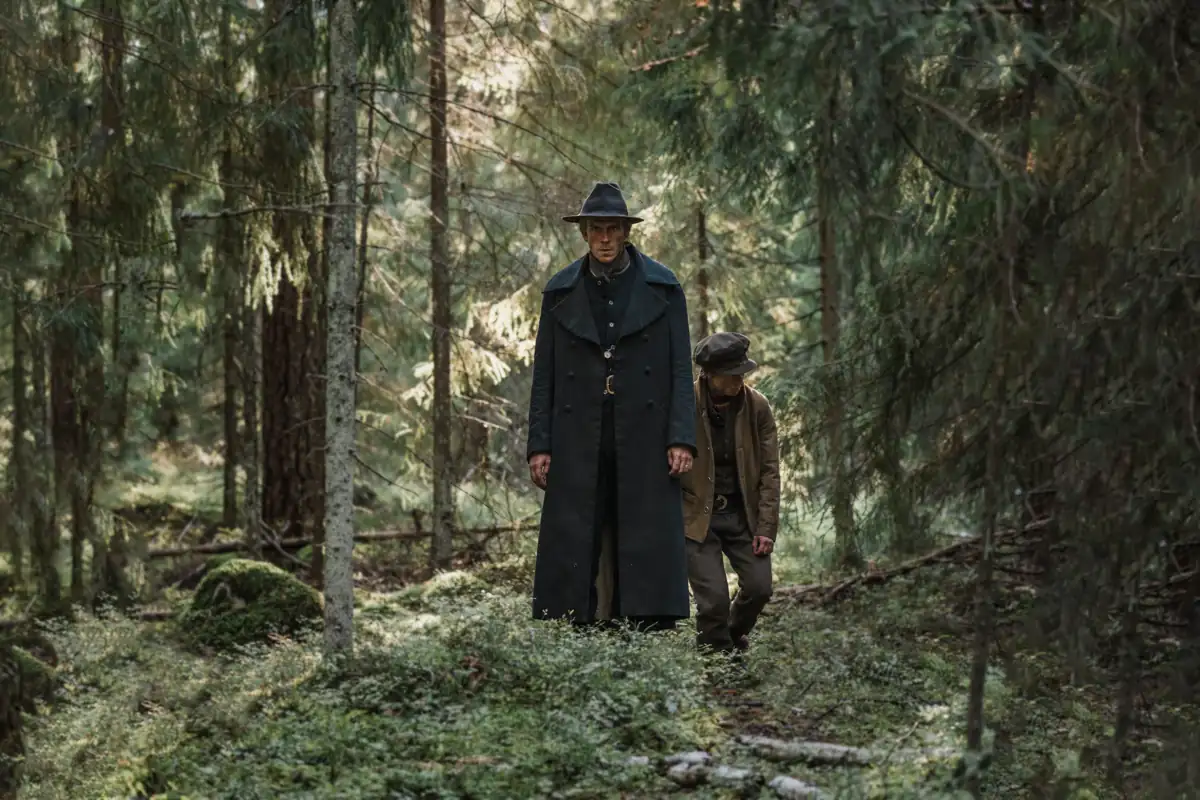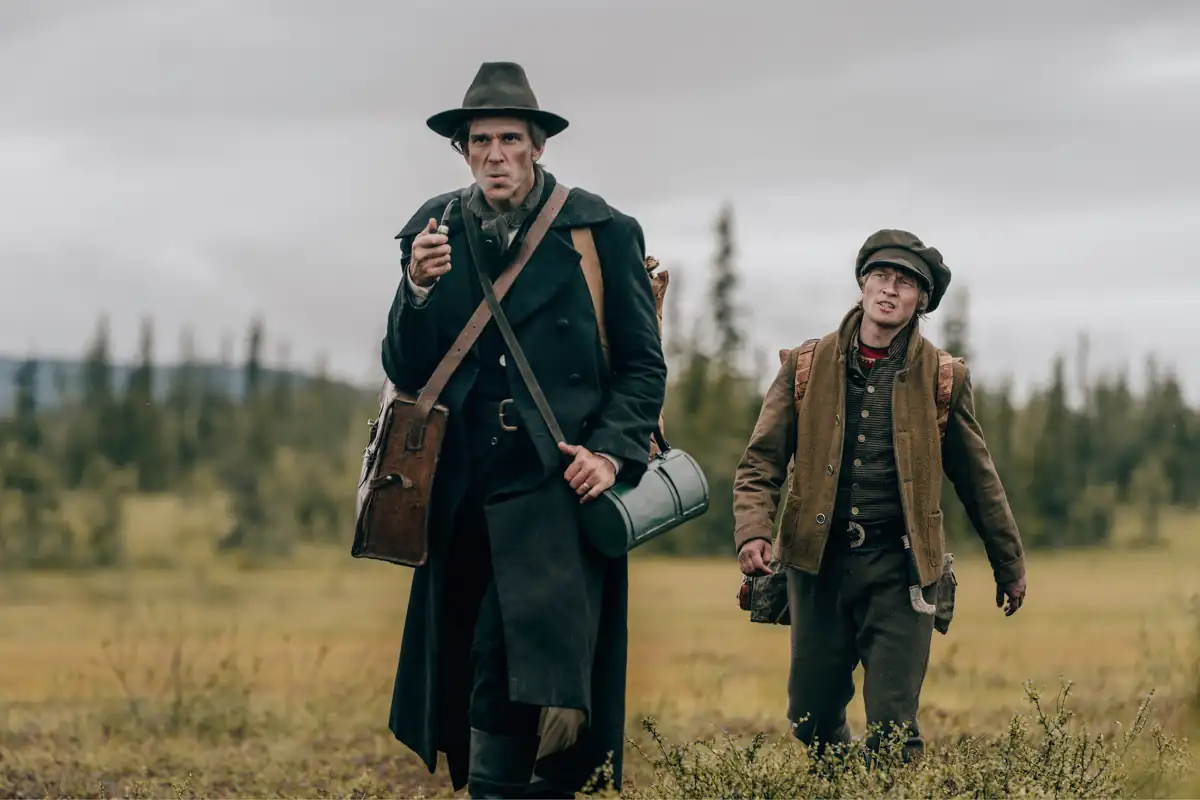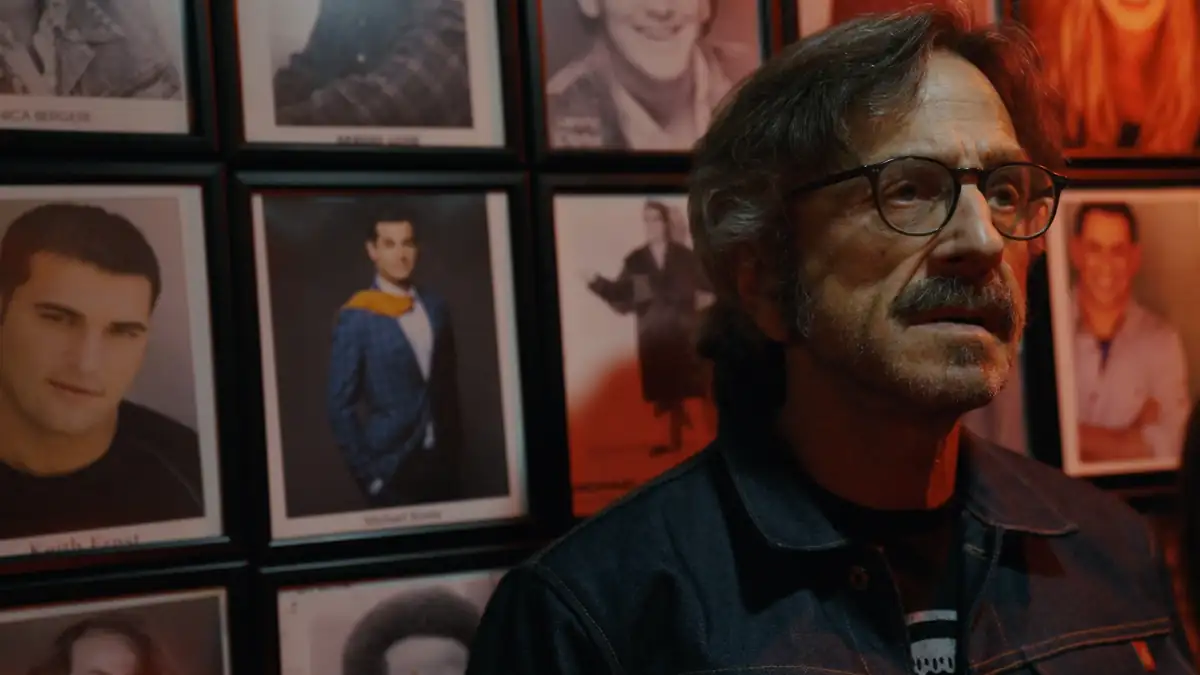In 2015, a fire broke out in the Colectiv nightclub in Bucharest, killing 27 people immediately and another 37 from infections in local hospitals. After the initial shock wore off, people were left with more questions than answers. How could so many people die from the aftermath when their wounds were not fatal? Why were the deaths from infections, and in Romanian hospitals that were famously advertised as extremely sterile?
In COLLECTIVE, directed by Alexander Nanau and premiering on HBO Nordic on June 4th, journalist Cătălin Tolontan sets out to ask these questions, only to unearth a vast conspiracy controlling every aspect of modern Romania.
Playing out like a real-life John Grisham novel, COLLECTIVE is horrifying, heartbreaking, and absurd in a way that chills you to the bone. It’s the epitome of the saying that life is stranger than fiction as every turn in the conspiracy thriller that unfolds feels wilder than any movie. Tolontan is the ultimate underdog, writing for a local sports paper when he spots inconsistencies in the reports regarding the Colectiv deaths.
Far too many are dying from treatable infections, and the reported efficiency of Romanian hospitals (“just like in Germany!”) proves highly questionable. As an insider begins to leak information, Tolontan is set on the trail of Hexi Pharma, a global supplier of disinfectants that has tampered with their dilution process. It’s not long before the first of many discoveries is made: Hexi Pharma had diluted the disinfectants over ten times, leaving them essentially worthless for any sterilization — but cheaper to buy.
Events escalate and witnesses go missing; Dan Condrea, the CEO of Hexi Pharma turns up dead in what authorities deem as suicide; government officials begin circling the wagons. Tolontan soon discovers the extent of the corruption, and the revelations leave nothing in Romania the same ever again. As protests engulf the capital, the current administration resigns, paving the way for an interim new Health Minister, Vlad Voiculescu. A former patient's rights advocate, the new leader promises accountability and transparency at every turn. But as he and Tolontan begin to unravel the decades of rot in the system, they find their entire country built upon a foundation of corruption and greed.
The exposé and hunt for accountability is punctuated by tender moments between one of the survivors of the Colectiv fire. Tedy Ursuleanu suffered major burns escaping the nightclub, losing one hand and multiple fingers from the other. Yet she refuses to hide away, becoming a model and icon for those who lived. Nanau does not interview her, nor any other survivor, but instead allows for their lives to speak for themselves. Her refusal to hide from the world or let the malpractice of others dictate what her future will be like. There is grace and nobility in that, even as her fate should anger anyone who sees it.
Nanau’s observational, fly-on-the-wall approach is hugely captivating, and the tense editing and pacing of the documentary make for gripping viewing. An immense amount of access has been granted to the filmmakers and the resulting film provides a clearer example of banal evil than ever before. Press conferences are particularly aggravating to watch as Tolontan asks tough, but entirely fair questions relating to the treatment of the victims, only to be shot down by snide and snippy retorts that have nothing to do with the matter. On a surface level, and with the power of hindsight, it’s easy to point out the liars in the equation and demand action.
But Nanau doesn’t settle for simplistic condemnations. His camera captures not just the willful laziness of people in power, but of the media as well. As the investigation goes on for years and the mountains of evidence begin to reveal that the corruption encompasses the country entirely, people and the media start to grow tired of the constant bad news. There comes a breaking point when it’s just too much, and even the most alert watchdogs look away. When the new elections arrive, it’s painful to see how quickly comforting lies are accepted to restore a semblance of normality.
This is an important, timely, and desperately necessary documentary. While Nanau keeps the focus squarely on the aftermath of the fire and everything that unravels within the country, the message itself is clear: corruption like this is not just everywhere, but so commonplace that it’s the new norm. Every revelation is accepted by Tolontan with quiet resignation and seething anger, as if he and others always knew how things were, but the confirmation still feels like a betrayal. In the tradition of great documentarians, Nanau points the camera dispassionately at the evidence with hard eyes, never once wavering from showing the extent of the damage done. COLLECTIVE doesn’t offer a happy ending, which will naturally drive away some.
They will ask what the point is in showing how bad things are. What good does it do when we can’t change things? This is the wrong message to take away, Nanau says. Change is possible and we have seen glimpses of it. But it requires devotion and dedication. It demands that we sacrifice our normality and accept the new path that will not be the same as our lives once were.
That we become like Ursuleanu in turn.













